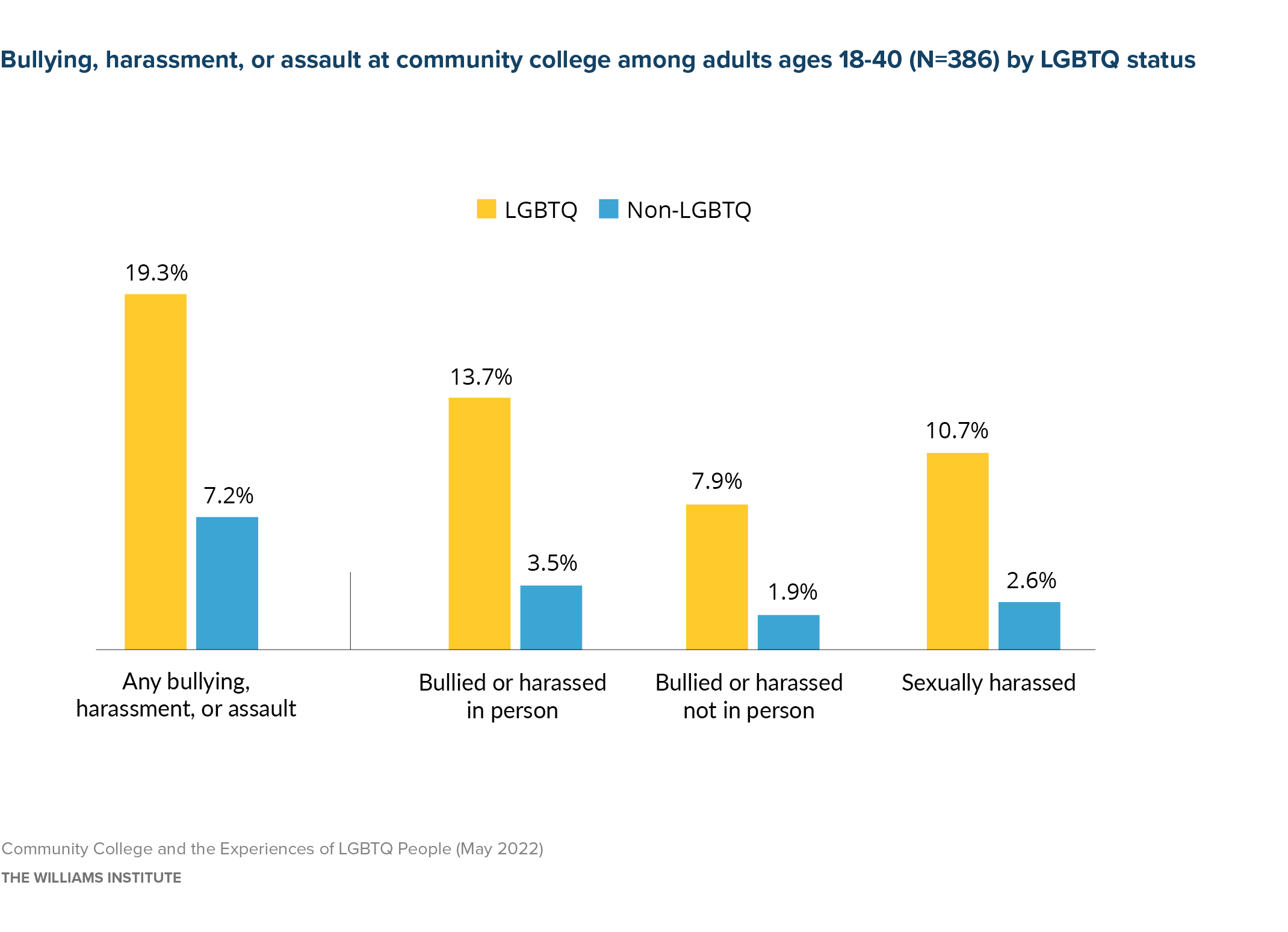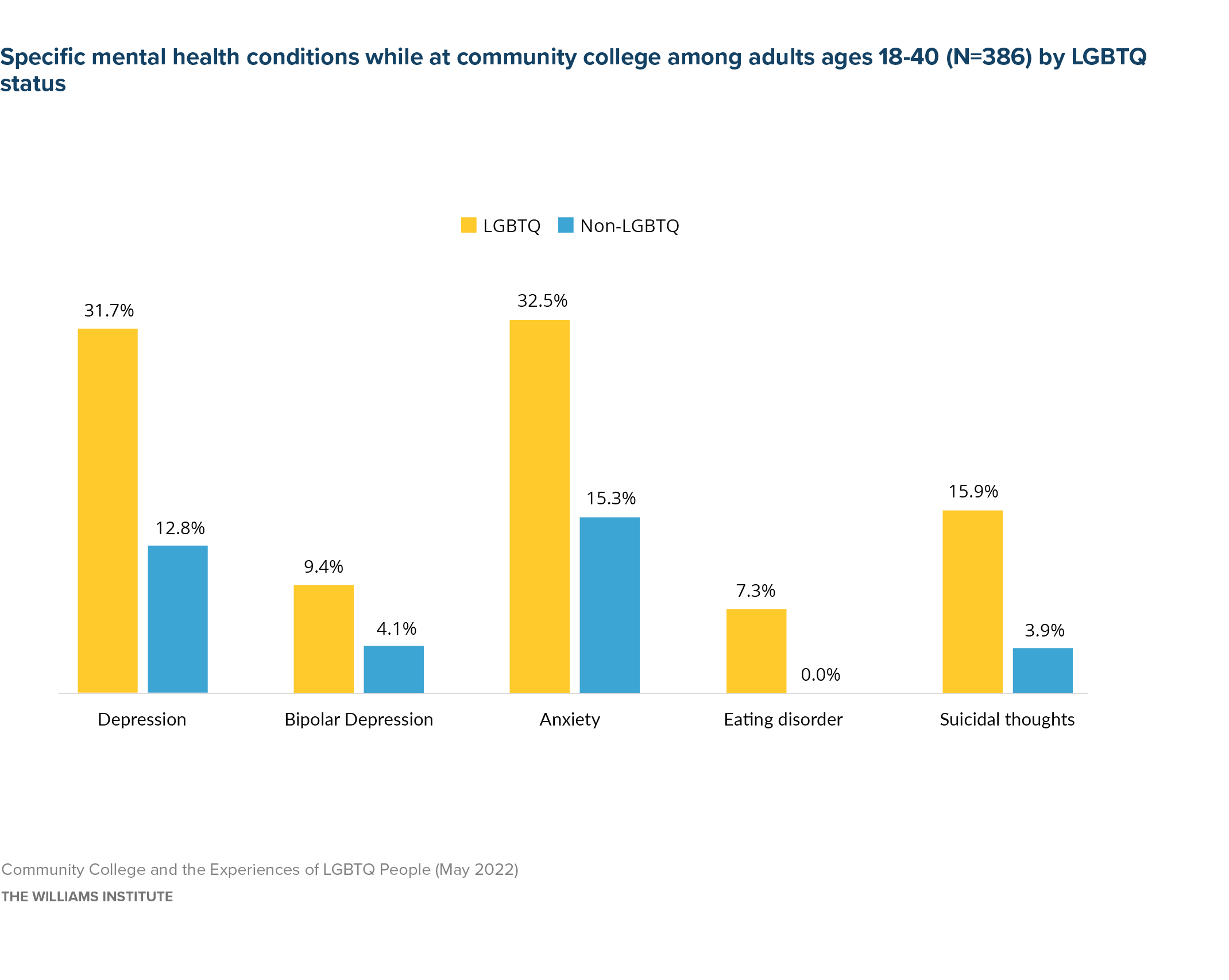Executive Summary
More than 4.6 million students are currently enrolled in community colleges in the U.S.—including over a quarter of all undergraduates. Community colleges provide a stepping stone to a four-year college and higher earnings. However, relatively little is known about the experiences of LGBTQ community college students.
This study provides new information about the experiences of LGBTQ people who have attended community colleges using data collected for the nationally representative Access to Higher Education Survey. Information about campus climate, experiences of belonging, discrimination, violence, mental health, educational aspirations, and sources of financial support were explored for LGBTQ and non- LGBTQ people (n=386) ages 18 to 40.
Nearly a third (32.7%) of LGBTQ people 18 to 40 reported that they attended community college at some point in their lives. Nearly all (96.2%) attended public institutions. Of those who attended community college, 14.4% were current community college students, 37.4% had completed an associate degree, and 21.0% had completed a bachelor’s or graduate degree. Over half (57.9%) reported aspirations to one day obtain more education (e.g., a bachelor’s or graduate degree).
Most LGBTQ people who attended community college were not “out” while attending, and LGBTQ students were more likely than non-LGBTQ students to report discrimination, harassment, and mental health struggles during their time there. A majority (74.8%) of LGBTQ people reported not being “out” as being LGBTQ to any of their teachers or staff, and 56.2% of LGBTQ people were not “out” to any other students at their community college. About four out of ten of all people found faculty and school staff and students at their community college to be “very accepting” of LGBTQ people.
LGBTQ people were nearly twice as likely to report unfair treatment by teachers, staff, or school administrators (22.1% vs. 11.7%) and hearing slurs or negative comments about LGBTQ people at their community college as their non-LGBTQ peers (24.0% vs. 12.7%). Almost three times as many LGBTQ people experienced bullying, harassment, or assault at their community college compared to non-LGBTQ people (19.3% vs. 7.2%, respectively). More specifically, one in ten (10.7%) LGBTQ people were sexually harassed at community colleges compared to 2.6% of their non-LGBTQ peers. Notably, faculty, school staff, administrators, and coaches were named as perpetrators by 16.3% of LGBTQ people who experienced bullying, harassment, or assault.

